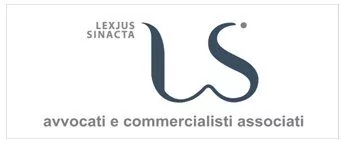On November, 11th the so-called "Sblocca Italia" act, which brings about urgent measures to kick-start the national economy, was promulgated.1 Under the title "Urgent Measures for the Improvement of Airport Functionality" a sub-article is devoted to regulating the regime on authorizing foreign airlines to operate under the fifth freedom of the air.
According to its wording, the Ministry of Infrastructure and Transport, in collaboration with the Ministry of External Affairs and International Cooperation, shall promote the conclusion or amendment of bilateral agreements on air transport. In the meantime, ENAC (Italian Civil Aviation Authority) shall issue temporary authorizations under the fifth freedom of the air regarding passenger and cargo flights, upon request of the carrier and with prior agreement from the Ministry of Infrastructure and Transport. Such authorizations shall respect European legislation and be of at least 18 months duration, renewable upon expiry. The aim of the issuance of said temporary authorizations shall be to ensure maximum international accessibility.
The freedoms of the air are a key factor in determining the international commercial aviation route network. Entitlement to operate international air services under these freedoms becomes valid only after national authorities have granted their consent, either through multilateral and bilateral treaties (air services agreements), or through ad hoc authorizations.
After Alitalia decided to transfer a large amount of its flights from the Milan Malpensa airport to Rome Fiumicino in March 2008, the former immediately registered a drop of more than 60% in Alitalia's flights and of 31% of total passenger traffic. Following this, ENAC has since granted several temporary authorizations under the fifth freedom allowing extra-UE airlines to stop over at Malpensa, thus alleviating the effects of de-hubbing on the Milanese airport.
However, recently Italian carriers have challenged the validity of the authorizations granted in that context before the Italian courts. This has been the case of Emirates Airlines and Qatar Airways.
In March 2013, ENAC authorized Emirates Airlines to land at Malpensa and board passengers travelling on to the United States.2 However, at the end of 2013, Alitalia Cai S.p.A. brought action against ENAC and the Ministry of Infrastructure and Transport, challenging the legitimacy of the authorization in light of the international and European legislation on the subject. As a result, the administrative court of first instance declared it null and void in April 2014. An appeal against this decision was filed before the Council of State, along with a request for the precautionary suspension of the first instance judgment. In May 2014, the Council of State granted the requested suspension, stating that the prejudice claimed by Emirates was clear and that the decision had also an impact on public interest and consumers.
An analogous controversy is under development with respect to authorization granted to Qatar Airways in the spring of 2013 regarding the route Chicago-Milan-Doha. In 2014, Cargolux Italia S.p.A. launched proceedings against ENAC claiming that such an authorization had been illegitimately granted. The decision of the administrative court that revoked the authorization was likewise appealed before the Council of State, and the request for the precautionary suspension of the first instance judgment was awarded last July.3 However, a final judgment by the Council of State is still awaited on both cases.
In light of this situation, it must be noted that the recent action by the Italian legislator on fifth freedom authorizations shows a clear intention to reaffirm ENAC's power to issue these kinds of authorizations in compliance with the international and European regulation. In other words, it seeks to avoid controversies like the ones described above, for the benefit of airport development. As the Italian Council of State pointed out, it is in the public interest to safeguard all aspects of increased competition in the air transport market.
Footnotes
1. Act of 11 th November 2014, n. 164, "Conversione in legge, con modificazioni, del decreto-legge 12 settembre 2014, n. 133, recante misure urgenti per l'apertura dei cantieri, la realizzazione delle opere pubbliche, la digitalizzazione del Paese, la semplificazione burocratica, l'emergenza del dissesto idrogeologico e per la ripresa delle attività produttive." (Conversion into Act, with Amendments, of the Decree Law of 12th September 2014, n. 133, regarding Urgent Measures for the Opening of Construction Sites, the Performance of Public Works, the Computerization of the Country, the Simplification of Bureaucracy , the Emergency of the Hydrogeological Imbalance and the Recovery of Production Activities),
2. See "Emirates Granted "Fifth Freedom Rights" For Milan-New York Flights: A New Target On EU - U.S. Routes", Anna Masutti and Alessandra Laconi, 21 May 2013, on Mondaq, accessible at http://www.mondaq.com/x/240244/Aviation/Emirates+Granted+Fifth+Freedom+Rightsquot +For+MilanNew+York+Flights+A+New+Target+On+EU+US+Routes
3. "The Italian Court Confirms Authorization to Qatar Airways to Fly from Milano to New York", Francesca Grassi, in The Aviation & Space Journal, July/Sept 2014, accessible at: http://www.lslex.com/bin/The_Aviation__Space_Journal_Year_XIII_no_3_July-JSept_201401.pdf
The content of this article is intended to provide a general guide to the subject matter. Specialist advice should be sought about your specific circumstances.


